Understanding the Benefits of Long-Term Rentals in Jupiter’s Residential Market
Introduction to the Jupiter Real Estate Market
Jupiter, Florida, is a highly sought-after destination due to its scenic beauty, high-quality living, and proximity to major urban centers like West Palm Beach. Known for its pristine beaches, top-tier schools, and vibrant community life, Jupiter has established itself as one of the most desirable places to live in Palm Beach County. Whether you’re considering investing in Jupiter real estate or looking to rent in this area, understanding the benefits of long-term rentals is essential for making informed decisions.
The Growing Appeal of Long-Term Rentals in Jupiter
Long-term rentals are often a smart choice for both renters and property owners in Jupiter. The steady demand for residential properties in Jupiter makes it an ideal market for individuals looking for a stable and reliable income stream. Unlike short-term vacation rentals, long-term rentals offer the advantage of more predictable rental income, providing stability for property owners. Renters, on the other hand, are drawn to the area’s combination of natural beauty, amenities, and sense of community.
Key Benefits of Long-Term Rentals for Property Owners
For property owners, long-term rentals in Jupiter offer a wide range of benefits, including financial stability, less turnover, and reduced vacancy periods. By renting out a property for a year or longer, owners can create a more consistent cash flow compared to short-term rentals, which tend to experience greater vacancy rates and more maintenance issues. Below are the specific advantages of long-term rentals for property owners.
Steady and Predictable Rental Income
One of the most significant benefits of long-term rentals is the consistent cash flow they provide. Unlike vacation rentals, which may experience fluctuations in demand, long-term leases typically span 12 months or more. With a long-term rental agreement, property owners can count on a steady stream of income, allowing for better financial planning. This stability is particularly beneficial during slower rental seasons or economic downturns.
Lower Vacancy Rates and Reduced Turnover Costs
With long-term rentals, owners can enjoy fewer vacancies. In addition, turnover costs—such as cleaning, advertising, and tenant screening—are significantly reduced. Since long-term tenants usually stay in the property for extended periods, owners don’t have to spend as much time or money preparing the property for new tenants. This is in sharp contrast to short-term rentals, which often require more frequent tenant transitions and associated expenses.
Less Management and Maintenance
Maintaining a long-term rental property typically requires less effort than managing a short-term rental. Long-term tenants tend to take better care of the property, as they are living in it for a prolonged period. While maintenance is still necessary, property owners can expect fewer urgent repair requests, and the property will likely stay in better condition overall. Additionally, property owners can often avoid the need for regular cleaning services, which are common for short-term rentals.
Stronger Tenant Relationships
Over time, property owners can establish a rapport with long-term tenants, which can lead to a more positive renting experience for both parties. Building strong relationships helps foster trust and reduces the likelihood of rental disputes. Furthermore, long-term tenants tend to be more responsible and reliable when it comes to paying rent on time, which minimizes the risk of late payments or evictions.
Benefits for Renters
Renting a home or apartment in Jupiter offers numerous advantages to tenants as well. While some renters may opt for short-term vacation rentals or seasonal leases, long-term rentals provide the stability and convenience that many individuals desire. Below are the key benefits that renters can expect from long-term leases in Jupiter.
Stability and Security
Long-term rentals offer a sense of stability and security that short-term rentals cannot provide. By securing a lease for 12 months or more, renters know they have a place to call home for the foreseeable future. This stability is ideal for those with families, individuals relocating for work, or those looking to establish roots in the community. The long-term nature of the lease also helps renters avoid the frequent disruptions and uncertainties of short-term rentals.
Affordable Rent in a Prime Location
Compared to buying a home or opting for a short-term rental, long-term rentals in Jupiter can offer a more affordable solution for individuals who want to live in this desirable area. For many, renting can be a more cost-effective option, especially for those who are not ready to commit to a mortgage or who prefer the flexibility of not owning property. Renters can enjoy living in an upscale community without the hefty upfront costs and maintenance responsibilities associated with homeownership.
Also read How to Choose the Right Property Management Company in Jupiter, FL
Access to Local Amenities and Attractions
Jupiter’s long-term rental market provides tenants with access to a wide array of amenities, from beach access and parks to restaurants and cultural events. Renters can enjoy the same benefits as homeowners, including proximity to Jupiter’s renowned attractions such as the Jupiter Inlet Lighthouse, Roger Dean Stadium, and the lush green spaces found throughout the area. For those seeking an active lifestyle, Jupiter offers countless recreational opportunities, including boating, golf, and cycling.
The Long-Term Rental Market in Jupiter: Trends and Insights
The long-term rental market in Jupiter has seen steady growth over the years. With an influx of people moving to the area for work, retirement, or a change of scenery, demand for long-term rental properties continues to rise. The area has become increasingly attractive to individuals who want to enjoy a laid-back coastal lifestyle while still having access to top-tier amenities.
Growing Popularity of Remote Work
The rise of remote work has played a significant role in the growing demand for long-term rentals in Jupiter. As more professionals are working from home, they are seeking out locations like Jupiter that offer a high quality of life, excellent weather, and access to outdoor activities. The desire for more space and a better work-life balance has led many people to choose long-term rental properties over short-term options. Additionally, the stability of long-term leases provides remote workers with the security they need in an uncertain world.
An Attractive Destination for Retirees
Jupiter is also becoming an increasingly popular destination for retirees looking to enjoy their golden years in a warm, welcoming environment. Long-term rentals offer retirees a chance to settle into the community without the burden of homeownership. Many retirees prefer renting to avoid the responsibilities of maintaining a property and to retain the flexibility to move or travel when desired. As a result, property owners in Jupiter can attract a reliable and steady pool of tenants by targeting retirees seeking long-term rental options.
Families Seeking Stability
For families, long-term rentals offer stability and the opportunity to settle into a neighborhood while having access to high-quality schools, parks, and family-friendly amenities. The family-oriented community in Jupiter is another reason why the demand for long-term rentals is consistently high. Families are often looking for properties in quiet residential areas that offer a strong sense of community and proximity to schools, making Jupiter’s long-term rental market an appealing choice.
Challenges in the Long-Term Rental Market
While the long-term rental market in Jupiter offers many benefits, it is not without its challenges. Property owners and tenants alike may face certain difficulties when navigating this market. Being aware of these challenges and knowing how to address them can make the rental experience smoother for both parties.
Rising Rental Prices
Like many other desirable areas, Jupiter has seen an increase in rental prices over the past few years. For property owners, this presents an opportunity to generate higher rental income. However, for renters, this can be a challenge, especially if they are on a fixed income or have a limited budget. Property owners may need to carefully assess local market trends to ensure their rental rates remain competitive while still offering value to tenants.
Tenant Screening and Property Maintenance
For property owners, one of the most significant challenges is selecting the right tenants. Proper tenant screening is essential to ensure timely rent payments, minimize damage to the property, and avoid legal issues. Additionally, while long-term tenants tend to cause fewer maintenance issues than short-term renters, it’s still important for property owners to stay on top of regular upkeep to maintain the property’s condition.

Get a Free Rental Analysis
Want to know how much your home will rent for? We’ll send you a free rental report!
Managing Long-Term Rentals: Best Practices for Property Owners
In order to maximize the success of long-term rentals in Jupiter, property owners need to implement best practices that ensure smooth operations and foster positive relationships with tenants. Below are actionable tips and strategies for effectively managing a long-term rental property.
Setting Competitive Rental Rates
One of the key factors in attracting and retaining tenants is setting competitive rental rates. Property owners should regularly assess the rental market in Jupiter to ensure their property is priced appropriately. While it may be tempting to set rental rates higher based on the property’s location or amenities, it’s important to stay competitive with similar properties in the area. Property owners should research rental rates for comparable homes or apartments and make adjustments based on the size, location, and condition of their property.
Additionally, property owners can consult with local real estate agents or property management companies to gain insight into current market trends and ensure their rates align with tenant expectations.
Creating Clear and Detailed Lease Agreements
A well-drafted lease agreement is an essential component of managing long-term rentals. Property owners should ensure that the lease includes clear terms regarding rent payment, security deposits, maintenance responsibilities, and any other pertinent policies. A strong lease agreement helps set expectations for both the tenant and the landlord, reducing the likelihood of disputes.
Some key points to include in the lease agreement are:
- Rent amount, due date, and late payment penalties
- Length of the lease term
- Security deposit requirements and conditions for its return
- Tenant’s responsibilities for property maintenance
- Policies regarding pets, smoking, and noise levels
- Procedures for handling repairs and maintenance requests
- Clauses for early termination or lease renewal
By providing clear guidelines, property owners can avoid confusion and ensure a smooth and mutually beneficial relationship with their tenants.
Maintaining the Property in Good Condition
Property maintenance is a crucial aspect of managing a successful long-term rental. Regular upkeep ensures the property remains attractive to tenants and retains its value over time. Property owners should establish a maintenance schedule that includes routine inspections, seasonal repairs, and addressing any issues that may arise. Promptly addressing repairs can help avoid more expensive problems down the line.
Common maintenance tasks to stay on top of include:
- HVAC system servicing
- Plumbing inspections and repairs
- Roof and gutter maintenance
- Pest control
- Lawn and landscaping care
- Appliance maintenance or replacement
A well-maintained property not only ensures tenant satisfaction but also helps maintain the rental’s market value.
Screening Tenants Thoroughly
Tenant screening is one of the most important steps in managing a long-term rental property. Choosing the right tenants can minimize the risk of late payments, property damage, and disputes. Property owners should establish a thorough tenant screening process that includes background checks, credit reports, and rental history reviews.
Key aspects of tenant screening include:
- Credit History: Reviewing a prospective tenant’s credit report helps determine their financial responsibility and ability to pay rent on time.
- Background Check: A criminal background check ensures the safety and security of the property and community.
- Rental History: Contacting previous landlords can provide valuable insight into a tenant’s reliability, cleanliness, and behavior as a renter.
- Income Verification: Ensuring the tenant has a stable income and can comfortably afford the rent is crucial for maintaining consistent rental payments.
By carefully screening potential tenants, property owners can find individuals who are likely to treat the property well and pay rent on time.
Offering Exceptional Customer Service
A key to maintaining positive tenant relationships is offering excellent customer service. Being responsive to tenant needs and concerns helps create a respectful and professional environment. Property owners should establish clear lines of communication with tenants, providing easy ways for them to reach out for maintenance requests or questions.
Some best practices for providing good customer service include:
- Responding to tenant inquiries within 24 hours
- Addressing repair requests in a timely manner
- Conducting regular property inspections to ensure everything is in good condition
- Offering flexibility when possible, such as extending lease terms or allowing tenants to make minor alterations to the property
Being a reliable and approachable landlord can help ensure tenant retention, making it more likely that tenants will renew their lease when it expires.
Handling Rent Increases and Lease Renewals
At the end of a lease term, property owners must decide whether to renew the lease with the current tenant or seek out new renters. If market conditions have changed, property owners may consider raising the rent for a lease renewal. However, it’s important to handle rent increases with care to maintain good relationships with tenants.
Before raising the rent, property owners should evaluate the current rental market in Jupiter and determine if the increase is in line with similar properties. It’s also a good idea to notify tenants well in advance of any rent increase. Providing sufficient notice and offering a fair rate increase can reduce the risk of tenants deciding to move out.
When negotiating lease renewals, property owners can offer incentives to encourage tenants to stay, such as:
- Maintaining the current rental rate for another term
- Offering upgrades or improvements to the property
- Providing flexibility on lease terms
These strategies can help foster tenant loyalty and prevent vacancies, which are often costly for property owners.

Financial Considerations: Managing the Financial Aspects of Long-Term Rentals
Managing long-term rental properties in Jupiter requires a solid understanding of the financial aspects involved. Property owners need to be proactive in managing their cash flow, budgeting for expenses, and maximizing their return on investment (ROI). Below are key financial considerations to keep in mind when managing long-term rentals.
Budgeting for Ongoing Expenses
Property owners must factor in both fixed and variable expenses when creating a budget for their rental property. These expenses can include property maintenance, utilities (if paid by the landlord), insurance, property taxes, and professional services such as property management or legal fees.
- Property Taxes: In Jupiter, property taxes can be significant, and property owners should budget for these costs annually. It’s advisable to stay updated on local property tax rates and any changes in legislation that might affect tax obligations.
- Insurance: Property insurance is another necessary expense. While typical homeowner’s insurance covers damages to the property, landlords should consider additional landlord insurance to protect against tenant-related risks, such as property damage or legal disputes.
- Maintenance Costs: Regular maintenance can be costly, especially in older properties. Property owners should allocate a portion of their income for ongoing repairs and preventive maintenance. Setting aside a maintenance reserve fund can be an effective way to manage unexpected expenses.
- Utilities: If the landlord is responsible for paying utilities such as water, gas, or electricity, these costs must be factored into the rental price or budget.
By planning for these ongoing costs, property owners can maintain positive cash flow and avoid financial strain.
Maximizing Rent Collection Efficiency
Efficient rent collection is crucial for the financial success of long-term rentals. Property owners should establish clear procedures for rent payments, including due dates, acceptable payment methods, and consequences for late payments. Offering multiple payment options, such as online payment platforms, can make it easier for tenants to pay on time.
To further encourage timely payments, consider implementing the following strategies:
- Late Fees: Include a clause in the lease agreement outlining the late fee policy for overdue rent. Ensure the fee is reasonable and compliant with local laws.
- Automatic Payments: Encourage tenants to set up automatic rent payments through their bank or an online payment service. This reduces the likelihood of missed or delayed payments.
- Reminder Notices: Send a rent reminder a few days before the due date to help tenants stay on track.
- Flexible Payment Plans: If tenants are facing financial hardship, offering a temporary payment arrangement or installment plan can prevent late fees and maintain a positive relationship.
By creating an efficient rent collection system, property owners can improve cash flow and reduce the risk of payment delays.
Understanding Tax Implications
Owning long-term rental properties in Jupiter has significant tax implications, and property owners must understand how rental income is taxed. In addition to property taxes, rental income is subject to federal income taxes. However, property owners can often deduct certain expenses related to the rental property, reducing their taxable income.
Common deductible expenses for rental properties include:
- Mortgage interest
- Property taxes
- Depreciation of the property
- Maintenance and repair costs
- Insurance premiums
- Property management fees
- Utilities (if paid by the owner)
To fully benefit from these deductions, property owners should keep detailed records of all expenses and consult with a tax professional who specializes in real estate. A qualified accountant can help property owners identify additional deductions and ensure they remain compliant with tax laws.
Investing in Property Upgrades to Enhance Value
One of the most effective ways to increase the profitability of long-term rental properties in Jupiter is by investing in property upgrades. Strategic improvements not only enhance the property’s value but also make it more appealing to potential tenants. These upgrades can justify a higher rent, improve tenant satisfaction, and reduce vacancies.
Popular upgrades for long-term rentals include:
- Kitchen and Bathroom Renovations: Upgrading outdated kitchens or bathrooms can significantly increase the property’s appeal. Consider replacing old appliances, installing modern fixtures, or updating countertops and cabinets.
- Energy Efficiency Improvements: Making the property more energy-efficient can reduce operating costs and make it more attractive to environmentally conscious tenants. Consider installing energy-efficient appliances, improving insulation, and upgrading windows and doors.
- Smart Home Features: Installing smart home technology such as smart thermostats, security cameras, and keyless entry systems can add convenience for tenants and increase the property’s desirability.
- Curb Appeal Enhancements: First impressions matter. Simple landscaping improvements or exterior painting can make the property look more inviting, attracting higher-quality tenants.
Property owners should assess the return on investment for each upgrade and prioritize improvements that will yield the greatest benefit.
Dealing with Vacancies and Minimizing Downtime
Vacancies are a reality for property owners, but minimizing the amount of time a rental unit sits empty can significantly impact the financial success of the property. To reduce downtime between tenants, property owners should:
- Advertise Early: Start advertising the property at least a few weeks before the current tenant’s lease expires. Listing the property on multiple platforms, including rental websites, social media, and local real estate agencies, increases visibility.
- Consider Offering Incentives: Offering incentives such as a rent discount for the first month or free parking can make the property more attractive to prospective tenants.
- Pre-qualify Tenants: By thoroughly screening potential tenants before the current lease ends, property owners can ensure a smooth transition between tenants, minimizing vacancy periods.
Taking proactive steps to reduce vacancies helps property owners maintain consistent rental income.
Final Thoughts
With these financial strategies, property owners in Jupiter can improve the profitability of their long-term rental properties while minimizing risks. By focusing on budgeting, efficient rent collection, tax planning, and property upgrades, landlords can create sustainable rental businesses that generate consistent cash flow and long-term success.
Suggested Relevant Links:
Long-Term Rental Property Management Palm Beach
Residential Property Management Palm Beach
Residential Property Management West Palm Beach
The Benefits of Using a Local Property Management Company in Jupiter, FL
FAQ: Understanding the Benefits of Long-Term Rentals in Jupiter’s Residential Market
1. What are the main benefits of long-term rentals in Jupiter? Long-term rentals in Jupiter offer stable, predictable income, lower turnover costs, and often attract more reliable tenants. The area’s desirable location near beaches and amenities also means a steady demand for rental properties.
2. How do I determine the right rental price for my property? To set a competitive rental price, research comparable properties in Jupiter. Consult local real estate agents or property management companies to ensure your rates are aligned with the current market conditions.
3. What should be included in a lease agreement? A comprehensive lease should include rent amount, due dates, late fees, maintenance responsibilities, pet policies, and procedures for renewing or terminating the lease. Clear terms help set expectations and reduce the chance of disputes.
4. How can I screen tenants effectively? Screen tenants by checking their credit history, criminal background, rental references, and verifying their income. This helps ensure you choose responsible tenants who will pay on time and care for the property.
5. What expenses should I budget for as a landlord in Jupiter? Key expenses include property taxes, insurance, maintenance and repairs, utilities (if covered by you), and management fees. Having a well-defined budget helps you maintain consistent cash flow and prepare for unexpected costs.
6. How can I attract reliable tenants and reduce vacancy times? Advertise your rental property early, offer incentives like a rent discount or flexible lease terms, and maintain the property well. Pre-screening tenants and ensuring the property is in good condition also reduces vacancy downtime.
7. Can I raise the rent at the end of a lease? Yes, but it should be in line with market trends. Provide tenants with ample notice of any rent increase, and ensure the increase is reasonable compared to similar properties in the area. Offering incentives like maintenance upgrades can also help retain tenants.
8. What are the tax implications of renting out property in Jupiter? Rental income is taxable, but property owners can deduct expenses like mortgage interest, property taxes, maintenance, and insurance. It’s wise to consult with a tax professional to ensure you’re maximizing your deductions and complying with local tax laws.
9. How do I handle maintenance requests from tenants? Respond promptly to maintenance requests and address urgent issues as soon as possible. Regular property inspections can help prevent small problems from becoming costly repairs, keeping tenants satisfied and minimizing maintenance expenses.
10. Should I consider upgrading my property for higher rent? Yes, property upgrades such as kitchen or bathroom renovations, energy-efficient appliances, and curb appeal improvements can increase rental value and attract high-quality tenants, leading to a higher return on investment.



